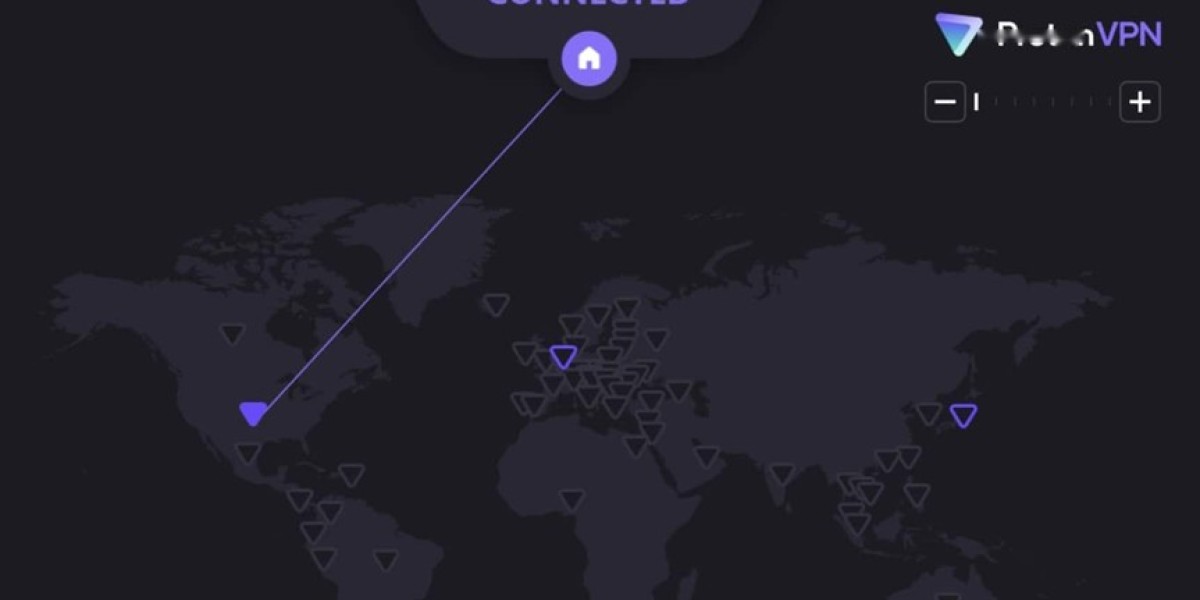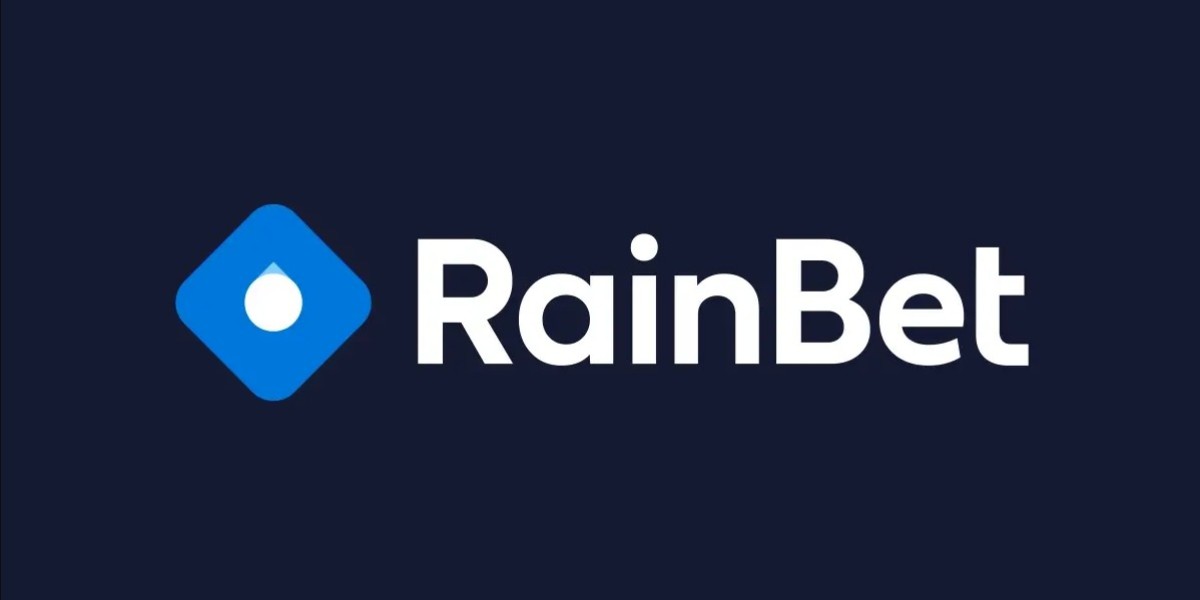VPN Comparison and Features
Navigating the crowded VPN marketplace requires discernment
as numerous providers inflate performance claims to attract users
Our approach relies on concrete, measurable testing protocols
to objectively contrast ProtonVPN and PrivateVPN capabilities
This empirical comparison moves beyond promotional assertions
assessing tangible factors that impact real-world usage scenarios
Independent verification reveals genuine service distinctions
across critical functionality benchmarks
Key performance indicators under scrutiny include:
connection stability and server network scale
media streaming compatibility success rates
actual throughput speeds under load
infrastructure security implementations
Evidence-based findings replace marketing superlatives
delivering transparent insights for informed decisions
Examination methodology remains consistent and replicable
eliminating subjective bias from service evaluations
Results expose operational strengths and limitations
providing clarity amidst competitive noise
Data-driven conclusions emerge from side-by-side analysis
for those prioritizing verified service quality
When comparing ProtonVPN and PrivateVPN, cost-conscious users might lean towards PrivateVPN for its more affordable pricing.
For those needing a short-term solution, such as a one-month subscription for a vacation, both services are quite budget-friendly. A single month of ProtonVPN is priced at $9.99, which is competitive with other top-tier VPNs. Similarly, PrivateVPN offers a one-month plan for a slightly lower price of $9.90.
For longer commitments, PrivateVPN offers a three-month subscription at $6 per month, totaling $17.99. This option is not available with ProtonVPN. However, ProtonVPN’s annual plan is nearly the same in monthly cost, coming in at $5.99 per month.
PrivateVPN truly stands out with its three-year plan, which brings the monthly cost down to an incredibly low $2.00. This makes it one of the most cost-effective VPN options on the market.
To lower the cost of a ProtonVPN subscription, you can opt for a two-year commitment. However, this plan is not as competitive as PrivateVPN, coming in at an equivalent of $4.99 per month, which is $3 more than what PrivateVPN offers.
Both services provide a 30-day trial period, allowing you to test their features and request a refund if you're unsatisfied. Just make sure to use the 30-day money-back guarantee before the trial period ends to get your refund.
ProtonVPN also offers a free, limited plan that lets you connect to servers in three locations: the Netherlands, Japan, and the US. This free option is popular, leading to congestion and slower speeds compared to ProtonVPN's paid service.
While the free version of ProtonVPN includes servers in the US, it won't work for accessing streaming services like Netflix US or Hulu.
For the best deal on PrivateVPN, you can get 85% off with their 3-year plan. For ProtonVPN, the best offer is a 50% discount with a 2-year subscription.
In the realm of VPN services, PrivateVPN and ProtonVPN stand out as exceptional options among the multitude of providers available today. These two services have established themselves as elite contenders in the competitive VPN marketplace.
Device compatibility is comprehensive for both services. You'll find dedicated applications for Windows, macOS, iOS, and Android platforms from each provider. Linux users will appreciate ProtonVPN's graphical user interface, while PrivateVPN offers command-line installation instructions for Linux enthusiasts. Amazon Fire TV and Firestick users can download either VPN directly from the Amazon App Store.
Router compatibility extends to numerous VPN-capable models for both services. Additionally, users can create virtual hotspots on Windows or Mac computers to extend VPN protection to smart TVs, gaming consoles, and other connected devices throughout their homes.
Neither ProtonVPN nor PrivateVPN offers browser extensions for Chrome or Firefox. While some may view this as a limitation, it's worth noting that standalone VPN applications typically provide more robust security than browser-based alternatives. Users specifically seeking browser extensions should explore other VPN options.
Connection allowances are generous with both services permitting 10 simultaneous device connections. This capacity adequately serves most households with multiple smartphones, tablets, computers, and smart home devices. For those requiring unlimited connections, alternative VPN services would be more suitable.
Security features are paramount in VPN selection, and both providers excel in this domain. ProtonVPN implements comprehensive protection including DNS leak prevention, IPv6 leak protection, AES encryption, ad-blocking capabilities, malware filtering, and stealth mode obfuscation. The inclusion of WireGuard protocol optimization helps maintain speed while streaming content.
ProtonVPN offers several advanced features to enhance user security and privacy. One of these is the Tor over VPN feature, which allows users to route their traffic through the Tor network for an additional layer of anonymity. Additionally, ProtonVPN includes a secure core server option, directing traffic through a second server located in a country known for strong privacy laws, such as Iceland or Switzerland, to further safeguard data.
In terms of connection stability, ProtonVPN is equipped with an auto-reconnect function that automatically re-establishes your connection if it drops, ensuring continuous protection. This feature works in tandem with a kill switch, providing robust security against data leaks.
For physical security, ProtonVPN ensures that its servers are fully disk-encrypted, adding an extra layer of protection against unauthorized access.
On the other hand, PrivateVPN offers a range of security features, including robust encryption, a variety of protocols, DNS leak protection, and obfuscated connections. It also provides a kill switch and port forwarding, making it a suitable choice for users who need to maintain a secure and private connection.
PrivateVPN extends its functionality with the inclusion of HTTP and SOCKS5 proxies, which can be particularly useful for activities like torrenting. However, it does not offer ad blocking, malware filtering, or split tunneling.
To set up split tunneling on Android, PrivateVPN users can use the native settings by selecting "allowed apps" in the system settings. For more detailed guidance, users can reach out to PrivateVPN's live chat support. Additionally, PrivateVPN provides setup guides for connecting via third-party OpenVPN and WireGuard clients.
Streaming Capabilities of ProtonVPN and PrivateVPN: A Comparative Analysis
When it comes to accessing geo-restricted streaming platforms, both ProtonVPN and PrivateVPN demonstrate remarkable capabilities, though with notable differences in their coverage.
ProtonVPN offers reliable access to Netflix libraries across multiple regions including the United States, United Kingdom, India, Italy, Australia, Germany, Canada, Japan, and France. This performance exceeds what most VPN providers can deliver.
PrivateVPN slightly edges out its competitor in Netflix accessibility, supporting approximately 12 different regional libraries including all those covered by ProtonVPN plus the Netherlands and several additional territories.
For other streaming services, ProtonVPN successfully unblocks Hulu, BBC iPlayer, Channel 4, ITV Hub, and Amazon Prime Video. However, users might encounter difficulties with CBS, NBC, and Sky Go.
PrivateVPN demonstrates more comprehensive streaming capabilities, working effectively with HBO Max, Hulu, BBC iPlayer, Channel 4, ITV Hub, Prime Video, Disney+, CBS, and NBC. During testing, ABC was the only major service that presented challenges.
Regarding usage in China, the two services differ significantly. ProtonVPN currently offers no support for users in China, making it ineffective against the country's extensive internet restrictions known as the "Great Firewall."
In contrast, PrivateVPN functions effectively in China when its obfuscation feature (Stealth VPN) is activated through the settings menu, allowing users to bypass censorship and access restricted services like Google, Facebook, YouTube, and international news sites.
Setting up ProtonVPN or PrivateVPN is straightforward and user-friendly. Simply visit the provider's official website through our referral link, register with your email address, complete the payment process, and download the appropriate application.
Both VPN services offer dedicated applications for Windows and macOS systems directly from their websites. ProtonVPN additionally provides Linux compatibility. For mobile devices, both services have apps available on Google Play Store for Android and Apple App Store for iOS users.
Installation is quick and effortless, requiring minimal technical knowledge. The applications have small file sizes that won't burden your system resources. Once installed, simply enter your login credentials to begin using the service immediately.
Despite offering advanced functionality that exceeds many competitors, both VPNs remain accessible to beginners. Users can enjoy basic protection without needing to navigate complex features, though these additional options are available when needed.
Server selection is intuitive with both services providing alphabetically organized server lists for easy navigation. ProtonVPN enhances this experience with an interactive map interface, allowing users to visually select server locations with a simple click.
ProtonVPN provides contextual guidance popups adjacent to its tools,
empowering users to navigate advanced settings with clarity.
Mastering features like split tunneling or port forwarding
does require familiarization with each platform's interface.
Fortunately, both services offer comprehensive tutorials
and responsive support teams ready to assist.
PrivateVPN delivers equally accessible documentation
for configuring specialized VPN functionalities.
PrivateVPN maintains a streamlined interface, prioritizing simplicity for users.
ProtonVPN, however, offers a greater depth of settings and configuration options.
To assist users in navigating this more feature-rich environment,
detailed informational pop-ups accompany ProtonVPN's interface elements.
This guidance helps overcome the initial learning curve
presented by its more complex arrangement compared to PrivateVPN's design.
VPN Performance and Security
ProtonVPN delivers impressive global performance,
recording download speeds averaging 243 Mbps worldwide.
This enables seamless HD streaming, gaming, and torrenting
without lag or buffering interruptions.
Its extensive infrastructure supports these activities,
boasting over 3,097 servers spanning 71+ countries.
Within the US alone, 957 servers across 14 cities
provide reliable access to geo-restricted content
like regional sports streams and localized services.
PrivateVPN operates a significantly leaner network
with approximately 250 servers total.
Yet these servers are strategically distributed
across 63+ nations and remain exclusively managed.
Despite fewer resources, it achieves respectable
global download averages of 71 Mbps.
Our testing confirmed consistent HD video playback
and smooth online gaming without quality drops.
This efficiency highlights exceptional load balancing
and server optimization preventing congestion.
When evaluating the effectiveness of a VPN, the security of the encrypted tunnel it provides is paramount. This feature is crucial for ensuring online privacy and safeguarding against threats such as eavesdropping, hacking, data exploitation by corporations, and government surveillance.
Fortunately, both ProtonVPN and PrivateVPN offer robust security measures. They both utilize the widely trusted OpenVPN protocol, which is known for its high standards. Additionally, they employ military-grade AES-256 encryption and perfect forward secrecy to ensure that your data remains secure.
One notable difference is in the RSA key size used for the initial handshake. ProtonVPN uses a stronger RSA-4096 key, while PrivateVPN uses an RSA-2048 key. Although both are considered secure, the RSA-4096 key offers a slightly higher level of security.
Both services provide users with the option to connect via OpenVPN UDP, which is faster, or OpenVPN TCP, which is more reliable for security. PrivateVPN also gives users the flexibility to choose from different ports, including 443, 1194, and 22, adding another layer of customization and control.
When considering ProtonVPN, one of its standout features is the ability to connect using the advanced WireGuard protocol directly from its client. This protocol is designed for speed, security, and exceptional stealth.
For those who prefer PrivateVPN, the service offers L2TP and PPTP connection options through its apps. If you wish to use more modern protocols like WireGuard or IKEv2, you can do so, but it requires manual setup. PrivateVPN provides guides to help with this, but it does add an extra layer of complexity compared to ProtonVPN.
Both ProtonVPN and PrivateVPN offer stealth or obfuscated connections, which are useful for hiding your VPN usage from your Internet Service Provider (ISP) by making your traffic appear as regular web activity. Additionally, these stealth connections can help you bypass strict firewalls that block common VPN ports, such as 1701, 1723-1729, 500, 4500, and 1194.
Both services shield users from accidental exposure through an automatic kill switch feature.
This vital tool instantly blocks all internet traffic if your VPN connection falters.
Consequently, your private online activities stay hidden from prying eyes on any network—be it your ISP, public Wi-Fi operators, or surveillance entities.
It also guarantees your true IP address remains concealed, protecting your identity from websites you access and peers during file-sharing activities.
Both ProtonVPN and PrivateVPN are situated in countries known for strong privacy laws, making them favorable choices for users concerned about data security.
PrivateVPN operates from Sweden, a nation without compulsory data retention laws for VPNs. Despite this, the company does cooperate with Swedish legal mandates, though it disregards any external requests not backed by local law. Notably, due to its stringent no-logging policy, there's minimal risk of user data being shared. The company is also planning to introduce transparency reports, though these are not yet available.
ProtonVPN, on the other hand, is based in Switzerland, another country with robust privacy protections. It adheres to a strict no-logging policy, ensuring that no user activity is recorded, including source and outbound IP addresses. While ProtonVPN does log the date and time of the last connection, this information is used solely for security purposes and basic usage analytics, and it is kept separate from user IP addresses to prevent any potential tracking.
In terms of payment, both services offer options to maintain anonymity. ProtonVPN accepts Bitcoin, allowing for private transactions. Similarly, PrivateVPN provides the option to pay via Bitcoin, and it uses third-party payment processors like PayPal or Stripe, which handle payment information separately from user data. For added privacy, users can choose to make payments while connected to a public Wi-Fi network or through another VPN or proxy.
PrivateVPN operates with a blended approach to IP allocation
offering both shared and dynamic dedicated IP addresses to its users
Its default shared IP configuration groups user traffic together
enhancing privacy through collective anonymity
These shared entry points are clearly designated as "all servers"
In contrast, ProtonVPN exclusively utilizes shared IP infrastructure
This design intentionally blends all user sessions on each server
The traffic mixing inherent to shared IP systems creates valuable obscurity
making individual activity extremely difficult to isolate
even during live server monitoring attempts
This privacy protection mechanism applies universally
across providers employing shared IP architectures
as it fundamentally complicates user-specific traffic analysis
When selecting a VPN service, users may opt for a dynamic IP option that assigns a random address exclusively for their session. This feature proves particularly valuable when accessing services that might restrict VPN connections. To utilize this functionality, simply look for options labeled as "dedicated IP" in the service interface.
Both VPN providers offer comprehensive DNS protection by routing all requests through their secure tunnels and resolving them on proprietary servers. They also provide essential DDoS protection by masking your actual IP address from online services and peer-to-peer connections.
Server-side NAT firewalls are implemented by both services, creating an additional security layer that blocks unwanted incoming traffic that could potentially introduce malware or enable hacker access to your network.
It's worth noting that one service allows users to bypass its NAT firewall when using port forwarding capabilities, while the other only offers port forwarding on dedicated IPs where NAT is disabled—potentially reducing security. For users with heightened security concerns, shared servers are recommended.
Neither provider currently offers dedicated static IP addresses, so users requiring this specific feature will need to explore alternative services.
For gamers, both services deliver robust global server networks enabling access to international gaming servers, language-specific player communities, and regional game stores with potentially lower pricing.
Multi-platform support is available across Windows, macOS, iOS, and Android devices. Both services allow configuration of computers as VPN hotspots, extending protection to gaming consoles that don't support direct VPN installation.
Router compatibility is excellent with both services, offering setup guides for DD-WRT, Tomato, and various router models. This allows whole-home protection without configuring individual devices.
While both services deliver gaming-viable performance, speed testing revealed one provider consistently outperformed the other, making it the superior choice for online gaming experiences.
Customer Service Comparison: ProtonVPN vs PrivateVPN
Both ProtonVPN and PrivateVPN offer comprehensive customer support resources on their websites, including detailed knowledge bases, setup guides, and FAQ sections addressing common user concerns.
PrivateVPN distinguishes itself with responsive live chat support available approximately 20 hours daily, ensuring global accessibility regardless of time zones. Their standout feature is remote technical assistance, where support agents can directly resolve complex issues on users' systems.
In contrast, ProtonVPN relies solely on email-based support through their website contact form. While this approach lacks the immediacy of real-time communication, potentially increasing resolution times, ProtonVPN compensates with an exceptional blog and news section.
ProtonVPN's informational resources cover VPN technology, cybersecurity developments, and global privacy issues—valuable content accessible to everyone, not just subscribers.
Response time analysis reveals significant differences between these providers, with PrivateVPN generally offering faster initial support contact through their live chat system compared to ProtonVPN's email-only approach.
PrivateVPN narrowly prevailed in this VPN matchup
despite remarkably balanced performance overall
Five critical areas ended in deadlock:
Features
Interface setup
Configuration options
Privacy safeguards
Security protocols
Where differences emerged:
PrivateVPN claimed advantages in
User support responsiveness
Streaming service accessibility
China firewall penetration
Cost-effectiveness
ProtonVPN delivered standout results for
Gaming connectivity
Server network speed
For mainstream needs, PrivateVPN proved superior
Mastering more Netflix regions and diverse platforms
while matching ProtonVPN's security standards
Its budget-friendly long-term plans delivered
impressive all-round functionality
Yet ProtonVPN remains compelling for specific uses
Advanced capabilities like split tunneling
may justify choosing it instead
Assess both services thoroughly:
*NordVPN vs ProtonVPN
*Private Internet Access vs PrivateVPN
*Hola VPN vs PrivateVPN comparisons provide further context
What is a Netflix VPN and How to Get One
A Netflix VPN is a specialized virtual private network service that enables viewers to bypass geographical restrictions imposed by Netflix, allowing them to access content libraries from different countries around the world. By routing your internet connection through servers in various international locations, a Netflix VPN effectively masks your real location and makes the streaming platform believe you're accessing it from the country where the server is located. This technology has become increasingly popular among Netflix subscribers who want to explore the full range of shows and movies available globally, rather than being limited to the content offerings in their home region.
Why Choose SafeShell as Your Netflix VPN?
If people want to access region-restricted content by Netflix VPN, they may want to consider the SafeShell VPN . 1. SafeShell VPN boasts high-speed servers that are specifically optimized for seamless Netflix streaming, ensuring buffer-free and high-definition playback. 2. It allows you to connect up to five devices simultaneously, supporting a wide range of operating systems including Windows, macOS, iOS, Android, Apple TV, Android TV, and Apple Vision Pro. 3. The exclusive App Mode feature lets you access and enjoy content from multiple regions at the same time, giving you the freedom to explore a world of entertainment without restrictions. 4. With lightning-fast connection speeds and no bandwidth limitations, SafeShell VPN ensures an unparalleled internet performance. 5. Your online privacy is safeguarded with top-level security features, including advanced encryption and the proprietary "ShellGuard" protocol. 6. Additionally, SafeShell VPN offers a flexible free trial plan, allowing users to experience its robust features, including Netflix unblocked , without any commitment.
A Step-by-Step Guide to Watch Netflix with SafeShell VPN
To start using SafeShell Netflix VPN , the first step is to subscribe to the service. Visit the SafeShell VPN website and select a plan that suits your needs. Once you have chosen your plan, click the "Subscribe Now" button to complete the subscription process. After subscribing, proceed to download and install the SafeShell VPN app on your device. The app is available for various platforms, including Windows, macOS, iOS, and Android. Simply go to the SafeShell VPN website, select your device, and download the appropriate version of the app.
Once the app is installed, launch it and log in with your account credentials. SafeShell VPN offers two modes; for the best Netflix experience, choose the APP mode. Next, browse the list of available servers and select one located in the region whose Netflix content you want to access, such as the US, UK, or Canada. Click on "Connect" to establish a connection to the chosen server. Finally, open the Netflix app or visit the Netflix website, log in with your Netflix account, and start enjoying the content available in the selected region.






